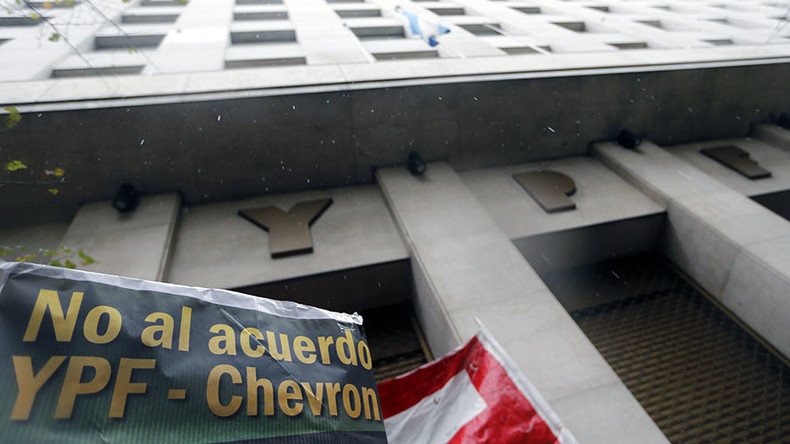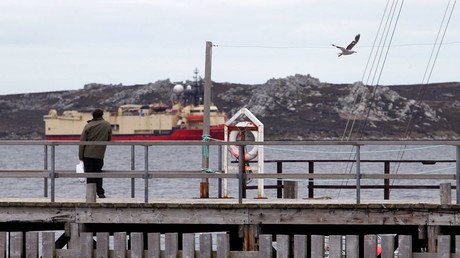New dirty war: Native Argentines fight fracking by global corporations

Oil companies looking to expand fracking in Argentina have been met by opposition from indigenous Mapuche communities and environmentalists who say the controversial extraction method has ruined their drinking water and caused cancer.
"The animals drank the water and then they gave birth to kids with just skin, no hair. That's never happened before," Mapuche member Susana Campo told the BBC.
Members of the Mapuche communities claim there has been an increase in animal deformities as a result of fracking, which pumps highly-pressurized water deep into rock to release gas and oil.
How Obama, Clinton, & the DNC forced fracking on the world https://t.co/E0SQ6xxAD7pic.twitter.com/TJRAmwrSea
— RT America (@RT_America) June 23, 2016
A University of Pennsylvania and Columbia University found people who live close to fracking sites are more likely to have heart conditions, cancer, and neurological illnesses.
The community insists the water is contaminated, with some reporting being sick from drinking it.
“I've had stomach aches. I've also vomited,” Josefia Campo said. “We know it's because the water is contaminated, but we have to continue drinking this water. Poor people can't afford to buy water.”
Argentinien: Mapuche fordern Fracking-Stopp in Neuquén // #Argentina#Mapuche#Indigenenhttps://t.co/52XBJbBEclpic.twitter.com/h2FadExsgJ
— Mapuche Indigenous (@mapucheNL) September 6, 2016
The area has experienced an increase in cancer and birth defects, the Argentina Independent reports.
“This year I have four horses that have died because of the water,” Faustino Molina from Newen Kura explained. “In all the years that YPF [the partially-state-owned oil company] has been here, they haven’t given me anything, not even a piece of bread.”
The country contains the world’s second largest supply of shale oil, making for a coveted resource for the oil and gas industry.
Fracking site Vaca Muerta (Dead Cow) in the Neuquen province produces the second highest amount of shale gas, next to the US.
The Mapuche people were never asked about fracking on their land.
“The Mapuche people are angry. We feel like they have enslaved our land. It's as if someone came into your house without asking,” Albino Campo said.
The Neuquen region has been fracked since 2013, after the government attracted companies to extract shale from the region.
Chevron invested around $16 billion in a 35-year deal to plunder shale resources from the region. Humanosphere reports the corporation has drilled 420 wells in partnership with YPF, with plans to build another 200 over two years.
Following the appointment of President Mauricio Macri in December, Argentina has secured new deals with ExxonMobil for as much as $10 billion and Dow Chemical with $500 million in 2016 and a potential investment of $2.5 billion over the next few years.
Surprised the #Earthquake hashtag is not sponsored by #Chevron, #ExxonMobil, or #Halliburton, the biggest fracking companies in US.
— Jeremy Newberger (@jeremynewberger) September 3, 2016
About 50 municipalities have been successful in enacting fracking bans, largely in the Entre Rios province.
The area is home to the Guarani Aquifer, which is one of the largest bodies of underground freshwater in the world and borders Brazil, Uruguay and Paraguay.













